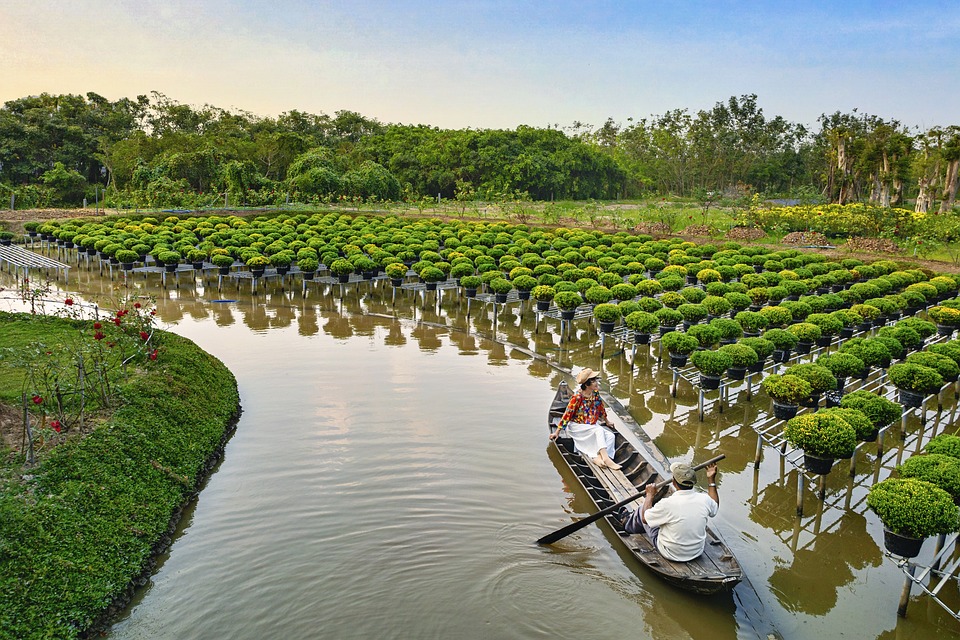From Farm to Fork: Uncovering the Benefits of Sustainable Farming Methods
I’ll never forget the first time I tasted a freshly picked tomato from my own garden. Its vibrant red color, bursting with flavor, and aromatic scent were unlike anything I had experienced before. As a passionate advocate for sustainable farming and gardening, my journey into the world of self-sufficiency has been both fulfilling and enlightening. In this article, we will explore the incredible benefits of sustainable farming methods, uncovering the profound impact they can have on our environment, health, and overall well-being.
Sustainable farming is a harmonious approach that combines innovative techniques with a deep respect for nature’s balance. By working with nature, rather than against it, sustainable farmers create an ecosystem that is not only conducive to growing healthy crops but also replenishes nutrients in the soil, conserves water, and supports diverse wildlife populations. Unlike conventional farming methods that rely heavily on synthetic pesticides, artificial fertilizers, and genetic modifications, sustainable farming promotes organic practices that enhance the long-term health of our planet.
One of the fundamental principles of sustainable farming is promoting soil health. Instead of relying on chemical fertilizers, sustainable farmers turn to composting, cover cropping, and organic matter to enrich the soil. These methods introduce natural nutrients and microorganisms that create a fertile environment for plants to thrive. Healthy soil not only produces nutrient-rich crops, but it also prevents soil erosion, mitigates water pollution, and facilitates carbon sequestration, playing a vital role in combatting climate change.
Another key aspect of sustainable farming is water conservation. Conventional agriculture accounts for a significant percentage of global freshwater usage, contributing to water scarcity in many regions. In contrast, sustainable farmers employ innovative irrigation techniques such as drip irrigation, rainwater harvesting, and precision farming to minimize water wastage. These methods not only reduce water consumption but also help preserve aquatic ecosystems, ensuring a sustainable water supply for future generations.
Furthermore, sustainable farming embraces biodiversity, recognizing that a diverse ecosystem is more resilient to pests, diseases, and climate change. By cultivating polycultures, where multiple crops are grown together, or practicing crop rotation, sustainable farmers create a balanced ecosystem that naturally controls pests and diseases. This reduces the need for harmful chemical pesticides, ultimately resulting in healthier produce for consumers. Additionally, farmers who embrace biodiversity also provide habitat for beneficial insects, birds, and other wildlife, supporting crucial ecological systems.
Apart from the environmental benefits, sustainable farming methods offer numerous advantages for our health and well-being. When we consume food grown using sustainable practices, we lower our exposure to harmful chemicals and synthetic hormones used in conventional farming. Choosing organic, sustainably-grown produce ensures that we nourish our bodies with food free from toxic residues, enhancing our overall health and reducing the risk of chronic diseases.
Moreover, sustainable farming practices prioritize the use of heirloom and open-pollinated seeds, preserving traditional crop varieties that are often more flavorsome and nutritious. These seeds are not genetically modified and allow farmers to save and exchange seeds, encouraging plant diversity and strengthening local food systems.
As we delve deeper into the world of sustainable farming, let’s explore some pro tips to help you get started on your own journey towards self-sufficiency:
1. Start small: Begin with a small garden or even a few potted plants. This allows you to develop and refine your skills without feeling overwhelmed.
2. Embrace permaculture principles: Permaculture integrates design, ecology, and sustainable agriculture to create self-sustaining systems. By implementing permaculture principles, you can maximize the productivity of your garden while minimizing waste and environmental impact.
3. Connect with local sustainable farmers: Reach out to local farmers who follow sustainable practices. They can provide valuable insights, resources, and even mentorship as you embark on your sustainable farming journey.
4. Prioritize soil health: Compost regularly, mulch your plants, and explore cover cropping to improve soil fertility and structure. Healthy soil is the foundation for a successful and sustainable garden.
5. Embrace diversity: Experiment with different crops, including heirloom varieties and indigenous plants, to promote biodiversity and explore unique flavors.
In conclusion, sustainable farming methods offer a wealth of benefits for the environment, our health, and our communities. By adopting organic practices, conserving resources, and nurturing biodiversity, we can create a more sustainable and resilient food system. So, roll up your sleeves and join the movement towards sustainable agriculture – it’s an exciting journey that will not only satisfy your taste buds but also help safeguard our planet for future generations.
Keywords: sustainable farming, gardening, organic practices, soil health, water conservation, biodiversity, health, well-being, pro tips, permaculture, local farmers.



